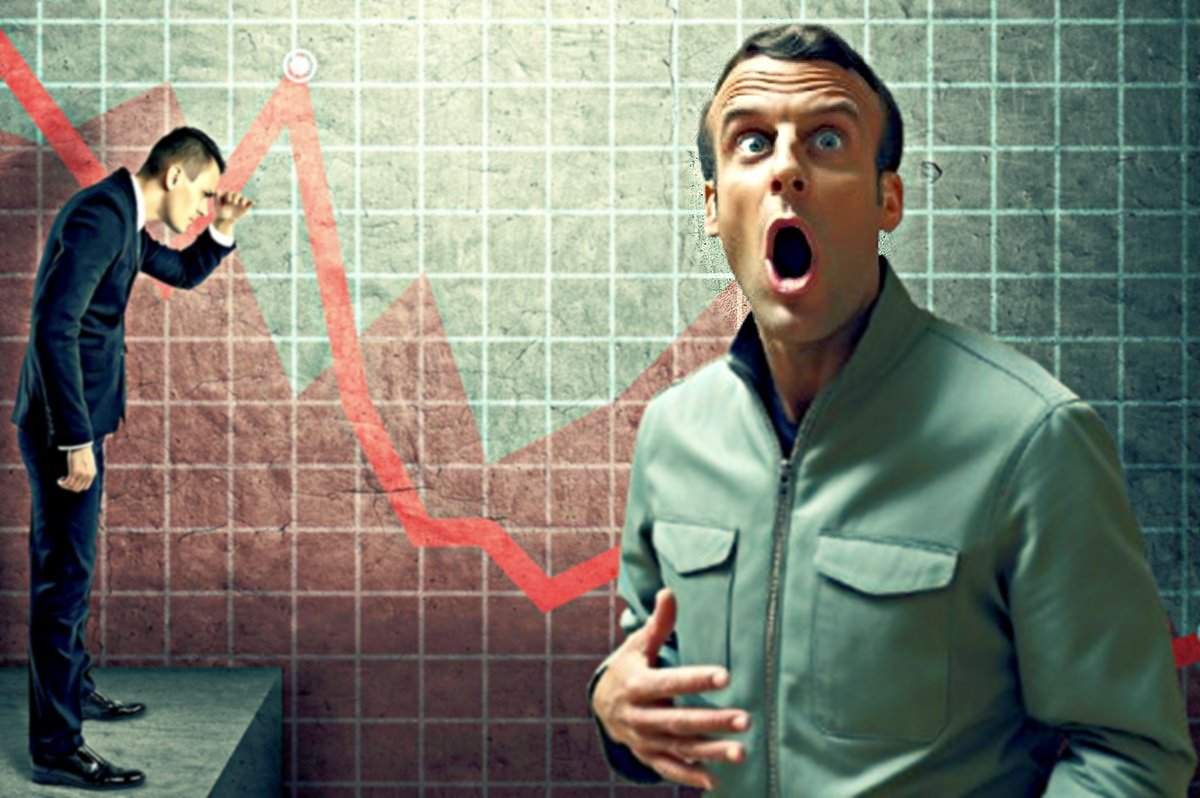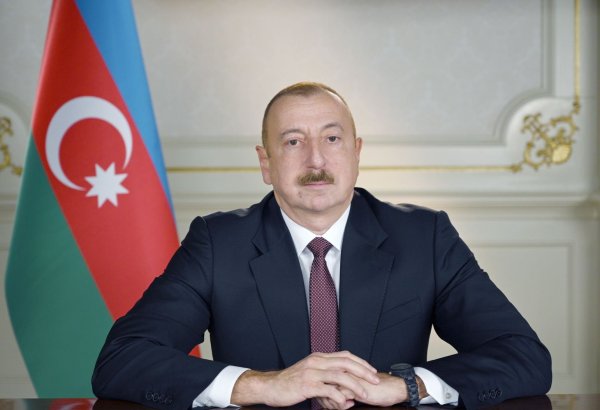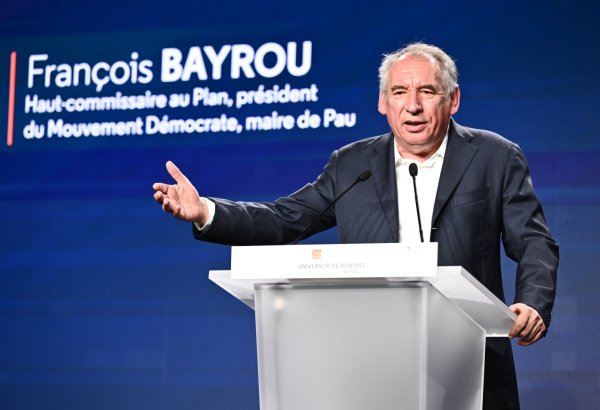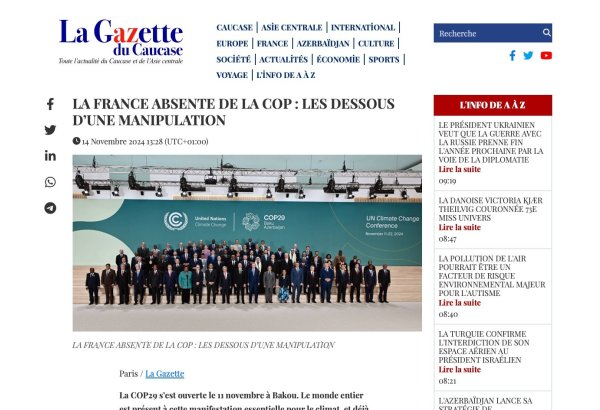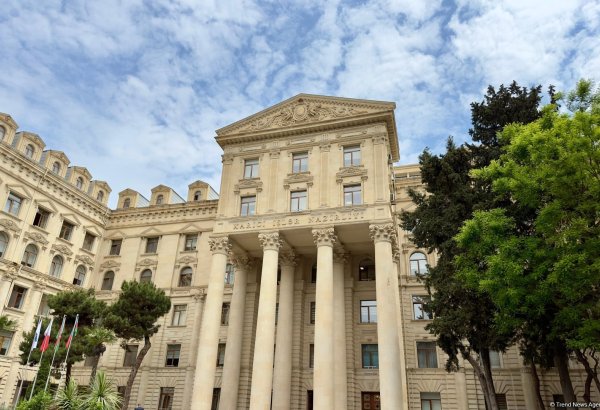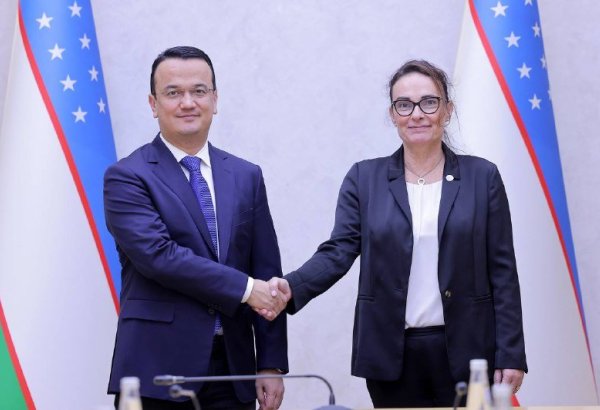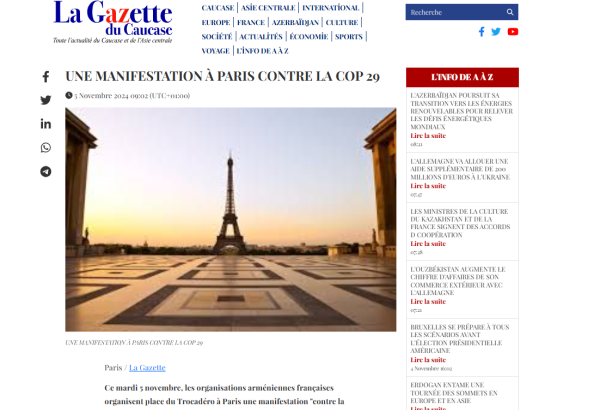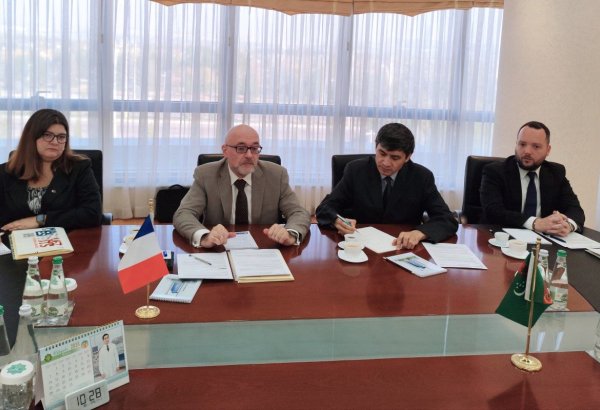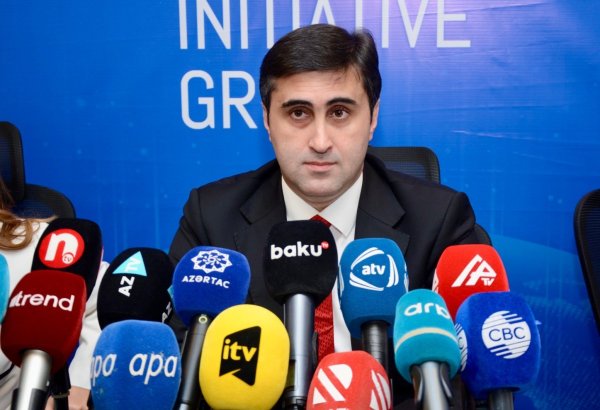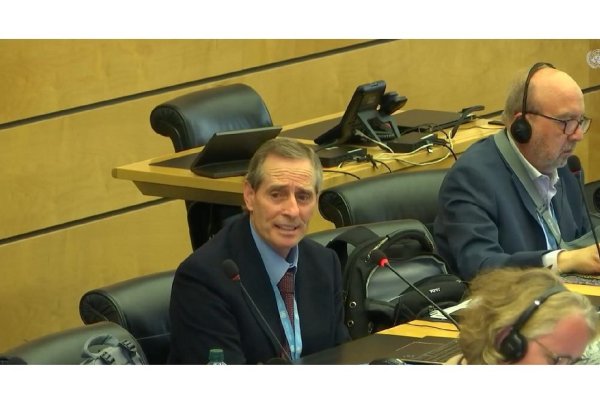BAKU, Azerbaijan, October 22. France finds itself in the throes of a deep political crisis, with President Emmanuel Macron at its epicenter as his once-robust popularity continues to nosedive , TurkicWorld reports referring to BakuNetwork.
A recent Ifop poll revealed a staggering 78% of French citizens no longer approve of Macron’s leadership, and this steep decline in support is far from accidental. Macron, who styled himself as a transformative reformer, now faces widespread resistance, as his bold attempts to modernize France have sparked intense opposition across a broad swath of society.
Macron’s approval rating has never been lower, and in just the past five months, he has shed 9% of his base. This swift erosion of support is closely linked to the aftermath of the snap parliamentary elections, which forced Macron into an uneasy power-sharing arrangement with right-wing factions led by new Prime Minister Michel Barnier. The fragile coalition between the president and the right has not only opened a political vacuum but has also intensified internal strife within the executive branch and the parliament.
Barnier, a seasoned political operator, was brought in during turbulent times. His mission: to restore public confidence in the government and stabilize a shaky economy. Yet, even his closest allies acknowledge the growing unlikelihood of success. Public discontent with Barnier’s leadership has already reached a critical point, with his approval rating plummeting to 60%. Now, his government faces the looming threat of a vote of no confidence. The leftist opposition, embodied by the "New People's Front" (NFP) that holds a majority in the National Assembly, has aggressively challenged Barnier’s policies, demanding sweeping changes to the very principles guiding government formation.
Macron’s political crisis is exacerbated by widespread disillusionment over socio-economic reforms. The flashpoint remains the highly unpopular 2023 pension reform, which ignited massive protests and dealt a devastating blow to Macron’s credibility. The government’s refusal to reconsider this reform has only deepened the fissures between the right and left, widening the divide within an increasingly polarized French society.
Equally contentious is the 2025 budget proposal. Barnier has introduced austerity measures that include slashing government spending by €60 billion, cuts to public programs, and the imposition of new taxes. While aimed at reducing the country’s bloated deficit, these proposals have drawn fierce backlash from both the left and the broader public. Critics argue that the cuts unfairly target social programs, while the new tax policies pose an existential threat to the middle class and businesses. The bulk of the additional tax burden is expected to fall on large corporations and wealthy citizens, inflaming already heightened social tensions.
Macron’s presidency, once marked by ambitious reformist zeal, is now tethered to a government that struggles to maintain public trust. The deeply unpopular pension reforms, combined with Barnier’s stringent budgetary proposals, have created an environment ripe for civil unrest. France’s working and middle classes, burdened by rising taxes and shrinking social services, increasingly view the Macron administration as out of touch with their daily struggles.
As Macron’s political future hangs in the balance, the broader implications for France are becoming starkly clear. The escalating social unrest and political infighting suggest that without meaningful reforms, the country may be heading toward prolonged instability. France’s position as a European powerhouse, once undisputed, is now being undermined by domestic turmoil. The president, once the face of European progressivism, is now struggling to manage the fallout of policies that many see as overly technocratic and disconnected from the needs of ordinary citizens.
Ultimately, Macron’s presidency faces a critical juncture. The question now is whether his administration can navigate this mounting crisis and emerge stronger, or if France will succumb to a deeper political paralysis that could have lasting repercussions not just for Macron, but for the Fifth Republic itself.
The government's attempts to justify these measures as essential steps to combat the financial crisis have largely fallen flat. While Prime Minister Barnier insists that the new taxes will target only the 300 largest companies and wealthiest households, many view this approach as nothing more than a temporary bandage on a gaping wound. The 2025 budget projections reveal a stark reality: revenues are expected to reach €536 billion, while expenditures are set to soar to €684 billion, leaving a staggering deficit of €148 billion. This deficit, coupled with a national debt already exceeding 113% of GDP, places France in a precarious position on the global stage.
What’s even more alarming is the escalating national debt. The costs of servicing this debt have become one of the largest drains on the national budget, and the risk that the government will fail to meet long-term economic challenges grows by the day. According to Economy Minister Antoine Armand, this mounting debt could become the single greatest threat to France’s financial stability in the years ahead.
Compounding these internal challenges is France's ongoing support for Ukraine in its conflict with Russia. While Defense Minister Sébastien Lecornu acknowledges the need to cut expenditures related to Ukraine next year, the 2025 budget still proposes a €3.3 billion increase in defense spending. These funds are earmarked to strengthen France's military capabilities and bolster its international standing. Yet, in the context of a domestic economic crisis, many critics argue that such expenditures are both excessive and unsustainable, calling into question the government’s priorities.
France now finds itself at a critical juncture, grappling with both political and economic crises. If the parliament fails to approve the 2025 budget, Prime Minister Barnier could invoke Article 49.3 of the Constitution, a controversial measure allowing the budget to pass without a parliamentary vote. Such a move would almost certainly provoke another round of political confrontation and widen the rift between the government and the opposition. At the same time, the macroeconomic outlook remains fraught with uncertainty. A potential recession in Germany, or further escalation of conflicts in the Middle East, could severely disrupt France's already fragile economy.
As France teeters on the edge of both economic and political instability, Macron’s administration faces the urgent task of crafting a new governance strategy. This strategy must not only address the ballooning deficit but also work to restore public trust in a government increasingly seen as disconnected from the realities of everyday life. The question remains: can France emerge from this crisis, or will it slide deeper into prolonged recession and political paralysis? The answer may well determine the future of the country, but one thing is clear — France’s survival depends on how effectively its leaders confront these mounting challenges.
France, a nation with a rich history and once formidable influence on the global stage, is now grappling with mounting internal economic challenges that are becoming increasingly difficult to overlook. Despite maintaining its status as a reliable borrower in global financial markets, the stark realities of France's economic condition are raising serious concerns. The growing budget deficit, escalating national debt, and dimming economic prospects are casting doubt on Paris’ ability to address these challenges in the coming years.
A primary cause for alarm is the ballooning budget deficit. Last year, it stood at 5.5% of GDP, and this year it is projected to hit at least 6%, far exceeding the expectations for countries with comparable credit ratings. Fitch Ratings, one of the world’s leading rating agencies, has already downgraded France’s long-term outlook to "negative," a clear signal of declining confidence in the country’s ability to meet its future debt obligations.
The deteriorating situation is not solely a product of the growing deficit, but also weak economic indicators that directly affect the nation’s revenue streams. For instance, lower inflation has led to a €21 billion shortfall in tax revenues compared to forecasts. At the same time, spending on social programs—such as unemployment benefits and aid to local governments—continues to climb. Consequently, France increasingly turns to borrowing to cover these budgetary gaps, driving the national debt, which already sits at 112% of GDP, even higher.
Yet, the issue of national debt extends beyond the sheer size of borrowing. The reliance on loans is creating an environment where borrowing costs rise, introducing further economic challenges. Higher interest rates are expected to erode the country's investment appeal, potentially leading to a decrease in the foreign and domestic investment necessary to sustain long-term economic growth.
Many experts agree that while high national debt is not inherently disastrous, it becomes a critical vulnerability against the backdrop of weak economic activity. Servicing this debt requires a robust and stable economy, yet France currently lacks the economic momentum needed to support such a heavy financial burden. Stagnant GDP growth, dwindling consumer spending, and inadequate levels of investment heighten the risks associated with France’s growing debt.
The social consequences of this economic crisis are also becoming more pronounced. With limited financial resources, the French government is being forced to cut back on social spending. This trend will have inevitable repercussions for key sectors like education, healthcare, and infrastructure development—areas that are already under significant strain. Moreover, the country’s penal system is becoming another acute concern. Overcrowded prisons and limited funds are hindering much-needed expansion plans, creating yet another layer of complexity in managing the broader economic and social crisis.
In sum, France’s economic struggles are not only testing the country's financial resilience but are also raising serious questions about its long-term ability to navigate this period of economic turbulence. Without meaningful reforms and strategies that address both fiscal and social imbalances, France may find itself increasingly vulnerable on both domestic and international fronts.
Secondly, Macron’s social reforms have largely failed to deliver the promised results. Despite his efforts to cut budgetary spending, these reductions have disproportionately impacted social programs, leaving the public disillusioned. The highly controversial pension reform, which raised the retirement age, sparked widespread protests and public outcry. Many viewed this move as an assault on their welfare, particularly in a time of economic stagnation, where citizens feel the government is stripping away their final safety nets without offering tangible improvements in their quality of life. The reform, which lacked the necessary funding for full implementation, deepened the public's mistrust in Macron's leadership.
The third major issue lies in Macron’s foreign policy, where his approach has similarly faltered. His sanctions strategy, aligned with the broader European consensus, has arguably inflicted more damage on France than anticipated. The government's inability to manage the consequences of the anti-Russian sanctions has resulted in soaring energy prices, which have severely impacted the French industrial and agricultural sectors. Agriculture, already strained by high taxes and production costs, has been hit particularly hard, with farmers across the country staging mass protests in response to the deepening crisis in their industry.
Concurrently, France’s international influence has been waning. The nation’s once commanding position in European politics has diminished, reflecting Macron's failure to unite the EU around a cohesive economic and social agenda. Political fragmentation within France has mirrored the country’s declining leadership role within the EU, eroding its ability to shape the bloc’s direction as it once did.
On the domestic front, social tensions continue to rise. Unemployment remains stubbornly high, particularly among young people, while the country’s penal system has reached a breaking point. Many prisons are operating at over 200% capacity, underscoring the government's inability to address even the most basic social issues. The prison crisis serves as a stark indicator of how Macron's administration has struggled to keep up with the everyday challenges facing the French population.
In sum, Emmanuel Macron’s policies have steered France into a state of economic and social turmoil. His failure to enact effective reforms, compounded by his missteps on the international stage, has amplified social unrest and weakened the country’s overall stability. The Fifth Republic now stands at a pivotal moment, where continued inaction or ineffective governance could usher in even more profound problems. France, a nation with a proud history, is facing an uncertain future, and Macron’s ability—or inability—to address these issues will define the country's trajectory in the coming years.








